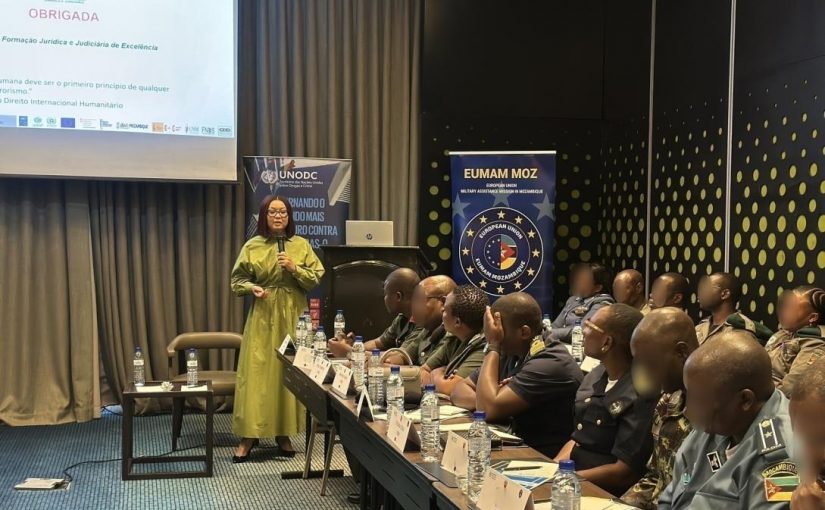Mozambique: Heavy vehicles banned from using the bridge over the Revué
Strengthening first response to victims of terrorism in Mozambique: A multi-institutional training concludes in Maputo

Photo: EUAM MOZ
A five-day specialized training on the reception and handling of victims of terrorism took place in Maputo, Mozambique. The training, held from 21 to 25 July 2025, brought together officers from the Armed Defence Forces of Mozambique (FADM), the Police of the Republic of Mozambique (PRM), and the National Criminal Investigation Service (SERNIC), and was organized under the joint initiative of the United Nations Office on Drugs and Crime (UNODC) and the European Union Military Assistance Mission in Mozambique (EUMAM MOZ) with financial support from the European Union.
The opening ceremony featured remarks by representatives of EUMAM MOZ, UNODC, and FADM, who reaffirmed the importance of inter-institutional coordination and capacity building in supporting victims of terrorism, particularly in the context of northern Mozambique, where the terrorism threat has intensified in recent years.
The training focused on enhancing the response capabilities of first responders and investigators in dealing with victims of terrorism in accordance with human rights and the rule of law. Sessions covered essential concepts of victimology, prevention of secondary victimization, the legal and institutional framework in Mozambique, and communication strategies with a strong emphasis on age and gender aspects. Special attention was given to the needs of particularly vulnerable victims and cases involving gender-based violence (GBV).
Participants engaged in interactive discussions and practical exercises aimed at improving their understanding of victims’ needs, building empathy, and applying victim-centered approaches in their daily duties. The training also explored how effective victim support contributes to national efforts to prevent violent extremism and supports ongoing criminal investigations.
This initiative is part of the broader project “Assisting Mozambique to strengthen criminal justice responses to terrorism and organized crime,” led by UNODC and funded by the European Union. It reflects a continued commitment to strengthening Mozambique’s institutional resilience in the face of terrorist threats while ensuring the protection and dignity of all victims.












Leave a Reply
Be the First to Comment!
You must be logged in to post a comment.
You must be logged in to post a comment.